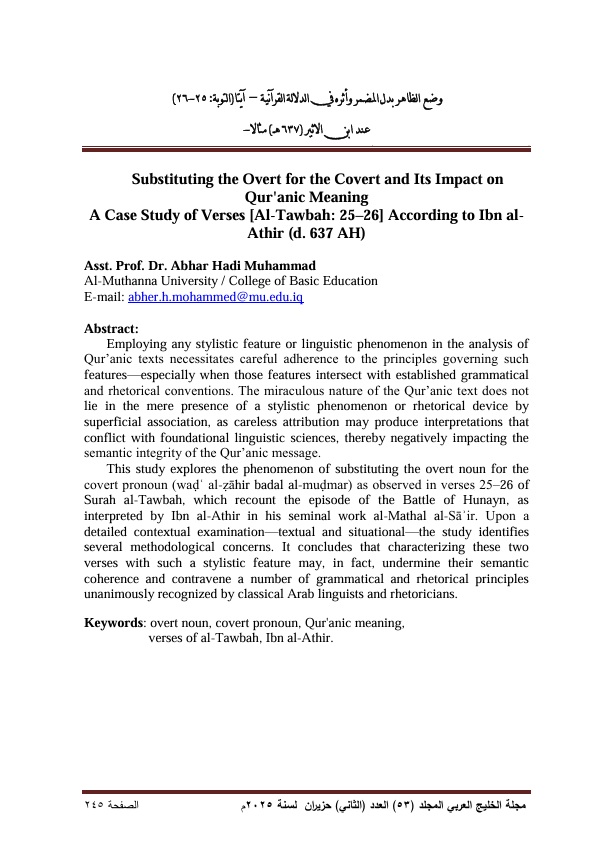Substituting the Overt for the Covert and Its Impact on Qur'anic Meaning A Case Study of Verses [Al-Tawbah: 25–26] According to Ibn al-Athir (d. 637 AH
Keywords:
overt noun, covert pronoun, Qur'anic meaning, verses of al-Tawbah, Ibn al-AthirAbstract
Employing any stylistic feature or linguistic phenomenon in the analysis of Qur’anic texts necessitates careful adherence to the principles governing such features—especially when those features intersect with established grammatical and rhetorical conventions. The miraculous nature of the Qur’anic text does not lie in the mere presence of a stylistic phenomenon or rhetorical device by superficial association, as careless attribution may produce interpretations that conflict with foundational linguistic sciences, thereby negatively impacting the semantic integrity of the Qur’anic message.
This study explores the phenomenon of substituting the overt noun for the covert pronoun (waḍʿ al-ẓāhir badal al-muḍmar) as observed in verses 25–26 of Surah al-Tawbah, which recount the episode of the Battle of Hunayn, as interpreted by Ibn al-Athir in his seminal work al-Mathal al-Sāʾir. Upon a detailed contextual examination—textual and situational—the study identifies several methodological concerns. It concludes that characterizing these two verses with such a stylistic feature may, in fact, undermine their semantic coherence and contravene a number of grammatical and rhetorical principles unanimously recognized by classical Arab linguists and rhetoricians




